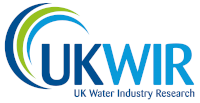BQ1 - How do we halve Freshwater Abstractions in a Sustainable way by 2050?
We are currently working on the approach to answering this Big Question, and more information will be given here soon.
The areas that this Big Question covers includes:
- Resilient water resources that cope with, and recover from, disruptions as well as anticipate trends and variability in order to maintain our supplies
- Eliminate water wastage
- Maximise use of potential new sources of drinking water (eg. desalination, final effluent re-use, rainwater harvesting)
Once we understand where the gaps are, we will produce a route map – this is a plan as to how we will answer our Big Question.
The route map will have a number of key elements. At the top will be our Big Question and then we will look to see what Outcomes we need from the research programme -if we can achieve all these outcomes we can answer the Big Question. This is the stage we are currently at for this Big Question.
The next stage will be to think about the key benefits we want the research projects to deliver to meet these outcomes.
Following this, we will plan the research projects to help deliver the benefits.
Improving understanding of current and future household water use
Water companies have committed to meeting ambitious targets that reduce how much water customers use, but have recognised they need to look at both extremes of the water cycle – the point at which water is abstracted from the natural environment (which is being looked at by other research projects for this same Big Question) and the point at which it is used, enjoyed, or lost/wasted in households.
HR Wallingford have just been awarded a contract to help us delve into this, read our factsheet below to know more.
